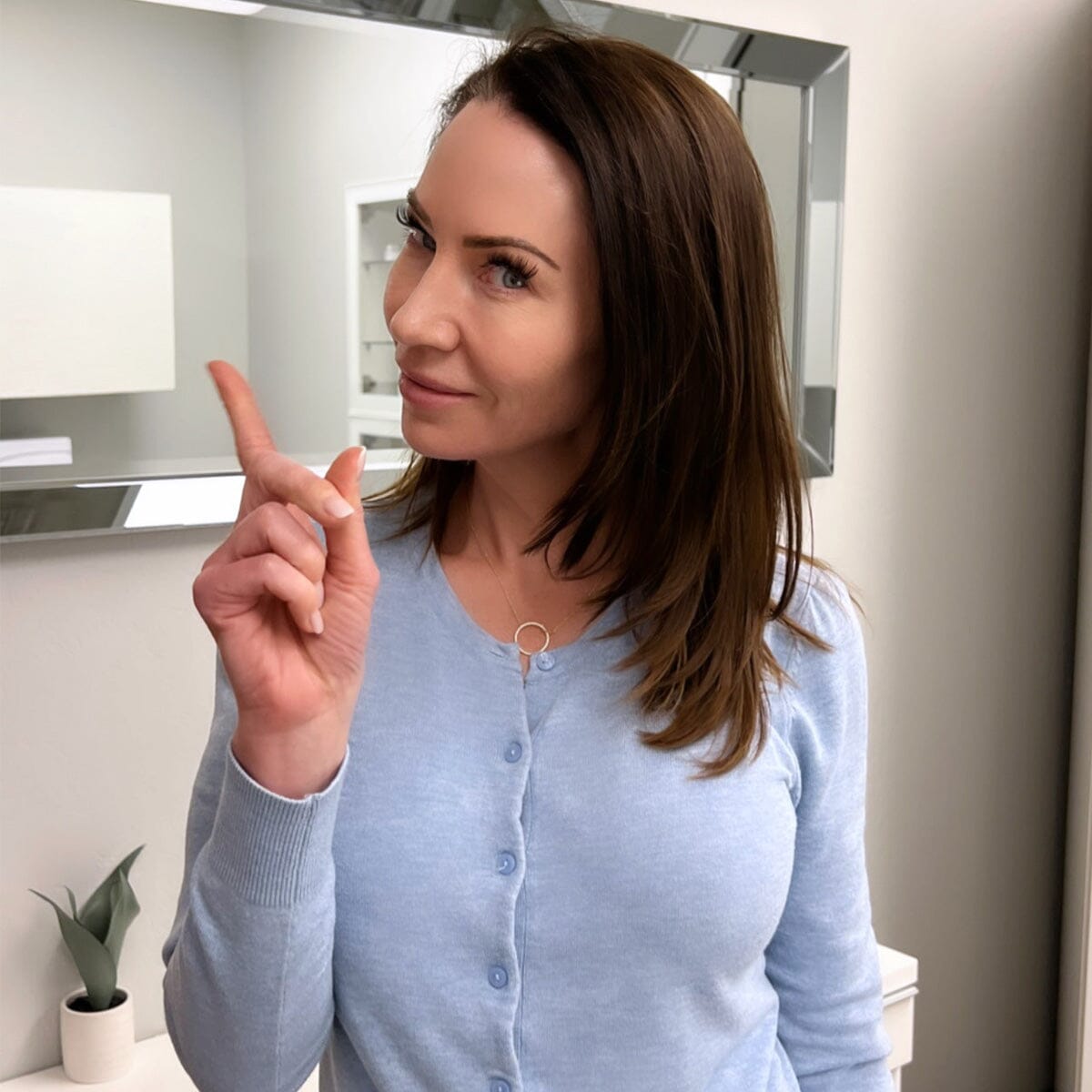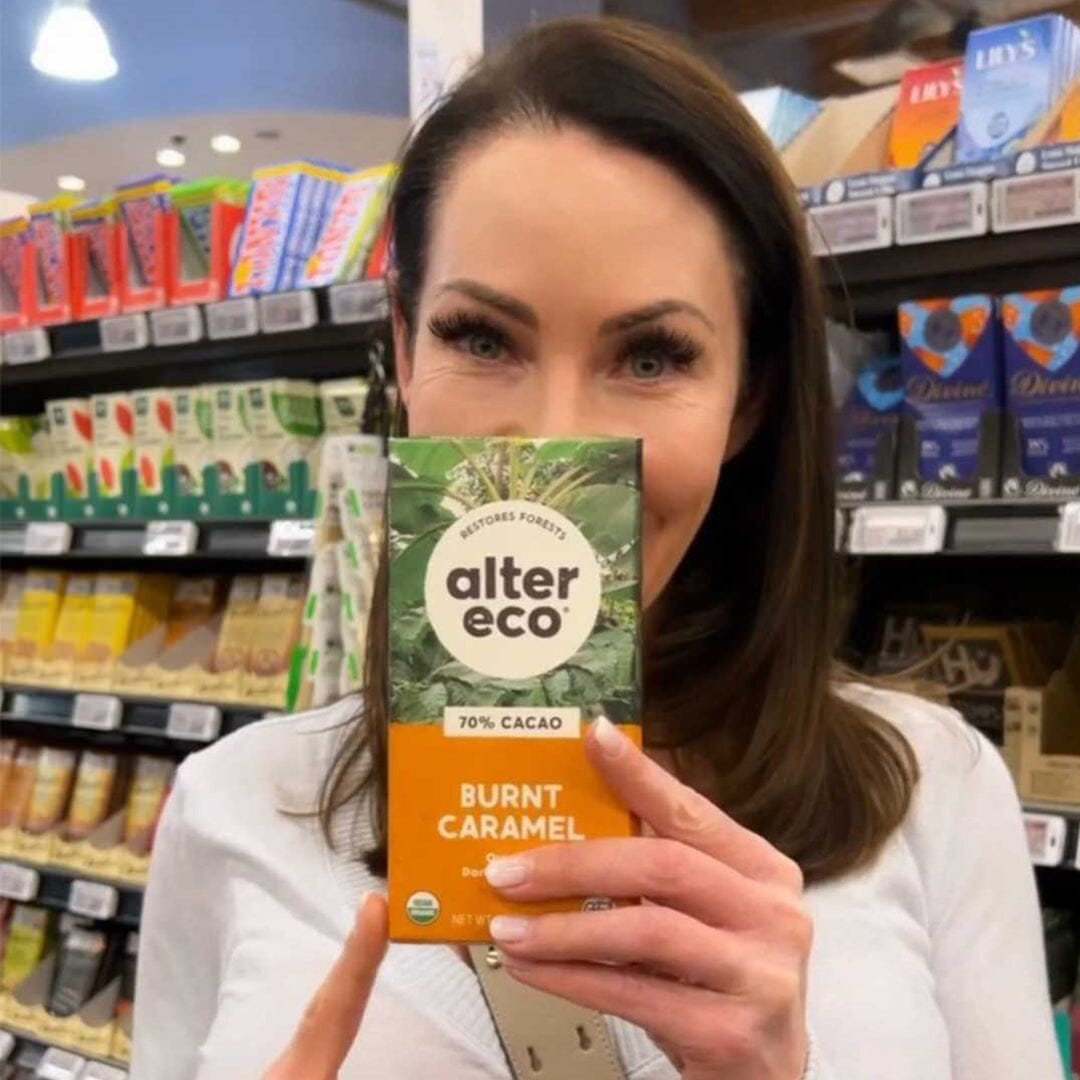A Natural Alternative to Accutane
by Emily Linehan on July 21, 2022
If you’ve struggled with acne, you may have looked into, or even been prescribed, Accutane (isotretinoin). Although they have become increasingly common, using medications like Accutane or taking antibiotics is merely putting a band-aid over the situation instead of addressing the root cause of acne. To add insult to injury, these medications are also accompanied by some pretty severe side effects.
If you feel like you have tried everything to clear your acne and are thinking about Accutane, you aren’t alone. In fact, according to the American Osteopathic College of Dermatology over 2 million people have taken the drug to date. [1] But what if I told you there was a natural alternative that offers the same benefits as Accutane, without the long list of dreaded side effects?
The natural solution? Vitamin B5! Studies have shown that Vitamin B5 (aka pantethine or pantothenic acid) is as effective as the drug Accutane in treating acne because it also works at the first stage of acne formation. To really understand this, let’s start by diving deeper into what Accutane is and how it works.
Already familiar with Accutane? Click here to jump to the natural alternative.
Accutane
Accutane (also known as isotretinoin) is a powerful, prescription-only medication approved by the U.S Food and Drug Administration in 1982 for treatment of moderate to severe acne that has not responded to other treatments. Belonging to the retinoid class of medications, Accutane is essentially a high dose of a Vitamin A* that works by shrinking the size and output of sebaceous (oil) glands. In doing so, this makes it more difficult for pores to become clogged and leads to a decrease in acne-causing bacteria.
(*It is important to note that high levels of Vitamin A can be toxic, so careful monitoring is required when taking Accutane.)
Accutane also inhibits keratinization which results in cells purging quickly before they are able to clump up and clog pores. Due to this, it’s important to remove other forms of exfoliation from your skincare routine while taking the prescription. Although this process of exfoliation sounds great in theory, interfering with keratinization can impact the body’s ability to heal wounds. For example, think of a scab that forms over a scrape or cut - it is essentially a clump of small cells (keratinocytes) that form a protective barrier to help heal the wound. If the body is unable to form those scabs, it can lead to prolonged healing, risk of infection, and other issues.
In addition, since Accutane was originally created as cancer treatment, it is a known immunosuppressant which allows for an anti-inflammatory response. This can help with the treatment of painful, inflamed acne, however it can have an adverse effect on your immune system. A study showed that patients treated with Accutane had a significant reduction in natural killer cell activity and numbers [2] however, there is little known about the long term effects.
As if the side effects mentioned above aren’t bad enough, Accutane comes with additional issues. For starters, it can cause a host of digestive issues such as leaky gut syndrome and even Irritable Bowel Disease. [3] Let’s not forget about the fact that in 2005, the U.S Food and Drug Administration issued an alert based on reports of suicide and suicide attempts associated with patients taking Accutane. This resulted in the FDA adding a black box warning to its packaging stating that all patients should be observed closely for symptoms of depression, suicidal thoughts, irritability, impulsivity, aggression, psychosis, changes in weight or appetite and more.
The list of side effects continues, many of which can vary in severity and longevity, however one of the most disappointing aspects of all is that Accutane works as a “band-aid” for acne. It is usually prescribed for 4-6 months, however you rarely hear of a person having one course of Accutane and staying clear for life. In fact, most people have a 50% chance of acne coming back, and have to take multiple rounds of Accutane. So even after risking severe side effects, the medication still didn’t treat the root cause of acne.
If you’re struggling with acne you may have read these side effects without flinching. I understand the desperation to clear your skin at any cost, however, there is a natural and effective way to clear acne without the harsh side effects.
Vitamin B5 (Pantothenic Acid)
As mentioned above, Vitamin B5 has been shown to be as effective as Accutane in treating acne because it too works at the first stage of acne.
Vitamin B5 is a water soluble vitamin that is commonly found in our diets through foods such as dairy, eggs and more. However, if you are aware of foods that can trigger acne, you may be avoiding those that are rich in B5, increasing your chances of not reaching your recommended daily allowance (approximately 5mg per day minimum).
Luckily, there are B5 supplements to help increase your intake. And, since B5 is water soluble it is almost impossible to get too much of the vitamin as any excess is simply excreted through urine. This means that it is very unlikely that you will experience any adverse side effects if you take too much, which is not the case for several other vitamins.
The benefit to B5 is that it creates coenzyme A (“CoA”), which helps with lipid metabolism, or the process that breaks down fatty acids and triglycerides in the body. In turn, this affects how much sebum the skin produces. When there is less sebum, there is less of a chance of clogged pores that result in breakouts. A study revealed that individuals suffering from acne showed a reduction of inflammation as well as an increase in the Dermatology Life Quality Index (DLQI) after adding pantothenic acid supplementation to their diet.
In addition, Vitamin B5 is naturally anti-inflammatory and can even help boost your immune system, resulting in an increased ability to fight acne causing bacteria.
Vitamin B3 (Niacinamide or Nicotinamide)
Vitamin B3, also commonly known as Niacinamide, is one of the more potent anti-inflammatory ingredients in the skincare game. It offers verifiable beneficial effects, including:
- Improves epidermal barrier function.
- Stimulates collagen growth and helps to correct hyperpigmentation by fading sun damage, pigmented acne scarring, and melasma.
- Reduces inflammation, which helps to ease redness and irritation from acne, eczema and other inflammatory skin conditions.
- Regulates the amount of oil the sebaceous glands produce and prevents oil glands from going into overdrive.
- Promotes the growth of healthy skin cells while also protecting them from environmental stresses, such as sunlight, pollution, and toxins.
The Natural Alternative
The program originally suggested by Dr. Lit-Hung Leung relied on patients ingesting 5-10 grams of pantothenic acid a day. However, Dr. Jeffrey Dach suggests a “modified Leung B5 protocol with Pantethine 750 mg with 250 mg of L Carnitine three times a day.”
It has been found that a combination of Vitamin B5 and Vitamin B3 working together helps to treat most cases of acne, however it is not something that is accomplished overnight. Furthermore, it is believed that adding other vitamins such as Vitamin A or B1, which improves the absorption of B5 in our gastrointestinal system, as well as the minerals zinc, selenium and chromium, enhance the effect of B5 on the skin and help with reducing acne breakouts and maintaining clear, healthy skin. Be sure to check any supplements closely to ensure that they don’t contain Biotin as too much of this vitamin can have adverse effects and trigger acne.
Below are treatment plans, however it is important that you always consult with a healthcare professional prior to starting or stopping any supplements.
Mild Acne
Take Orally:
- Pantothenic acid 750 mg and 250 mg l-carnitine 1x a day
- Niacinamide 500 mg 1x a day
Moderate to Severe Acne
Take Orally:
- Pantothenic acid 750 mg and 250 mg l-carnitine 3x a day
- Niacinamide 500 mg 1x a day
In addition to the supplements, implementing the right skincare products into your routine is crucial. Unfortunately, there is no one-size-fits-all which is why I offer a free, online consultation, however, the Clear Skincare Set is a great place to start for many of my clients with acne prone skin. Simply complete the online consultation and I’ll provide you with guidance on treatment serums and active ingredient recommendations, as well as advice regarding dietary and lifestyle habits that may be triggering your acne.
It is important to remember that there are no shortcuts, no miracle products, and no overnight “cures” for acne. In order to get lasting change in your skin, you will want to create cellular change. Just like losing weight, cellular change takes time, consistency and patience. Once beginning the supplements most people can expect to see initial improvement within 4-6 weeks and significant results within 12 weeks. For best results, it is recommended to use these supplements for a period of at least 6 months. Of course, be sure to always consult a healthcare professional to find out what is best for you.
Although there isn’t a cure for acne, it can be healed with the right skincare routine and lifestyle changes. In other words, what gets you clear will keep you clear…so, instead of opting for a band-aid fix like Accutane, I hope that you’ll consider this natural solution as it is a much safer, long term option for getting clear skin.
If you have any questions, or would like to learn more, please feel free to reach out to me. If you’re new here and have been struggling with your skin for years, or have just recently begun experiencing issues, I would love to help you! To get started, I encourage you to take my free online skincare consultation. It takes about 10 minutes and will allow us to dive deeper into your skin concerns, lifestyle and dietary habits that may be keeping you from the skin of your dreams.
xoxo, Emme
----
Disclaimer: This information is for educational purposes only and does not take the place of medical advice. These statements are not intended to diagnose, treat, cure, or prevent any disease. You should always consult with a healthcare professional before starting on any health plan or taking supplements.
Sources
[1] American Osteopathic College of Dermatology. (n.d.). Accutane - American Osteopathic College of Dermatology (AOCD). aocd.org. Retrieved June 29, 2022, from https://www.aocd.org/page/accutane
[2] McKerrow, K. J., MacKie, R. M., Lesko, M. J., & Pearson, C. (1988). The effect of oral retinoid therapy on the normal human immune system. The British journal of dermatology, 119(3), 313–320. https://doi.org/10.1111/j.1365-2133.1988.tb03223.x
[3] Crockett, S. D., Porter, C. Q., Martin, C. F., Sandler, R. S., & Kappelman, M. D. (2010). Isotretinoin use and the risk of inflammatory bowel disease: a case-control study. The American journal of gastroenterology, 105(9), 1986–1993. https://doi.org/10.1038/ajg.2010.124


